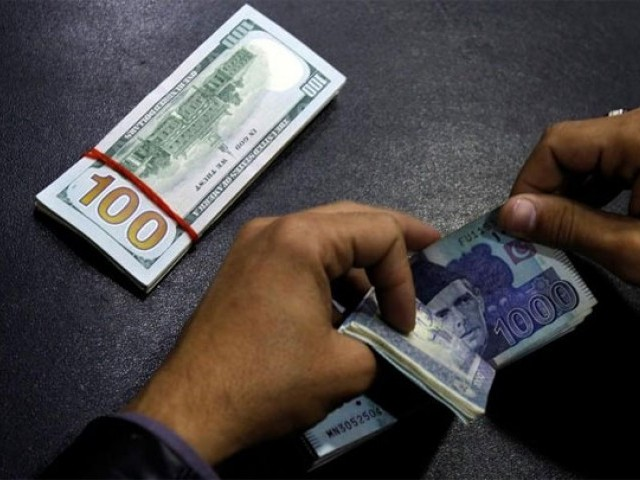Devaluation is not the answer for Pakistan
Pakistan needs to increase its exports exponentially and eliminate the trade deficit

PHOTO: REUTERS
The devaluation of approximately 32% of the Pakistani Rupee has had no impact on the growth of exports in dollars. Stagnant export statistics are a case in point. The rise in energy prices due to devaluation has increased prices across the board. The increase in foreign debt, in rupees, and its servicing has been the same as devaluation, putting additional pressures on the economy and the government’s budget-making, taking out a major chunk from the 2019-20 budget, leaving very little for development funding.
The main reason for the lack of growth in exports is the decline in industrial base and conversion of the economy to a consumer-based import economy. In the 1960s, Pakistan probably had a larger industrial base as a ratio to GDP than today. Over the last 30 years, balance of payments deficit has been filled mostly by remittances from hardworking overseas Pakistanis and through foreign loans. The import/export gap of nearly $40 billion in its last year alone consumed almost the entire foreign exchange reserves. Even the foreign loans could not help better the economic situation.
Devaluation has also hit Pakistan’s automobile industry. Plants are shutting down temporarily as slow sales are leaving vehicles unsold. The automobile industry, with nearly three million direct and indirect jobs in the country, has been one of the largest job creators, tax contributor to the exchequer and a major contributor to the country’s economy. So much so that one of the largest automobile producers in the world is considering making Pakistan a production hub for exports to the Middle East and Central Asia. But devaluation and its knock-on effect on import duties, sales tax, etc. is killing the automobile industry. If immediate steps are not taken to address this situation, a substantial number of jobs could be lost. While the government should immediately reduce import duties and sales taxes on CKD imports to save the auto industry before job losses incur and industry profits disappear. A delay in taking action could cost the country dearly.
At this point, Pakistan has little room to wiggle for rupee revaluation to reduce the cost of living for the common man. An urgent plan is needed to increase industrial production in the next two years to give a major boost to export. Once exports rise significantly, even the IMF will be more flexible on rupee valuation.
A rapid development of Special Economic Zones (SEZs) under CPEC is probably the answer. Major investment from China and other countries in SEZs could lift Pakistan exports rapidly, provided the industries set up are not for import into Pakistan but are substantially export based.
China imports hundreds of billions of dollars’ worth of food items each year. Pakistan has a surplus in wheat, rice, sugar, fruits and other agricultural products which can be readily exported to China. But this will require standardising, grading and proper packing of food and fruits. The quick implementation of agreements already in place with China to help boost agricultural output would help increase food and fruit exports rapidly. Expansion and increase in industrial output of current industrial base, rapid development, the up and running of SEZs and a significant increase in agricultural output will help Pakistan double or triple exports over the next few years.
It is a fallacy that devaluation will help increase exports without a corresponding increase in industrial and agricultural output. Instead of devaluation, Pakistan needs to increase its exports exponentially and eliminate the trade deficit leaving the remittances to be utilised for the repayment of foreign loans.
Published in The Express Tribune, July 17th, 2019.
Like Opinion & Editorial on Facebook, follow @ETOpEd on Twitter to receive all updates on all our daily pieces.













COMMENTS
Comments are moderated and generally will be posted if they are on-topic and not abusive.
For more information, please see our Comments FAQ